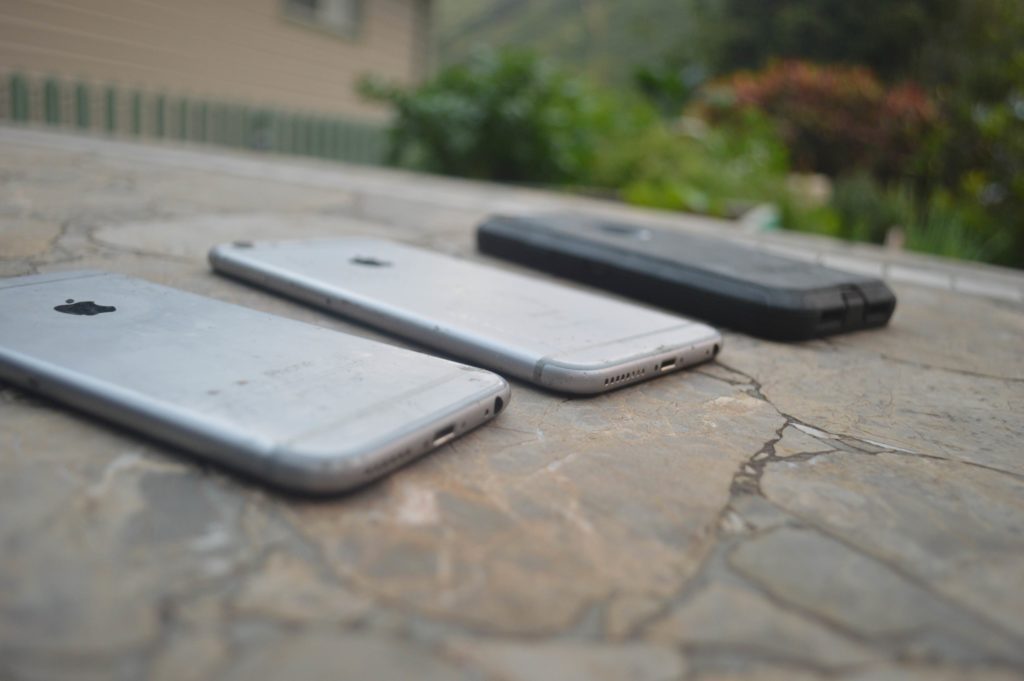The same devices we use to share our global concerns are rife with environmental problems, and sustainable tech is starting to feel like a pipe dream.
From smartphones to EVs, we’ve got to find a better way.

NPR recently covered the ongoing cobalt mining crisis in the Democratic Republic of the Congo. Current mining conditions in the country are unprecedented, with DRC citizens—often called “artisanal miners”—working in hot, crowded mines for next to nothing. Cobalt mining has also destroyed Congolese lands. The industry has decimated forests, polluted streams, and turned the air thick and gritty with haze.
You and I are not disconnected from these dismal practices. The cobalt mined in the DRC goes on to manufacture something we’re all familiar with: Rechargeable lithium batteries—the ones inside our phones, laptops, and electric cars. The DRC supplies about 70% of the cobalt in these batteries, so you’re likely using a device made possible by mistreated laborers in the DRC.
The DRC’s dire situation arose in part due to political instability. In the late 2000s, the DRC’s leader made a deal with China, offering massive cobalt resources in exchange for help with infrastructure. This deal paved the way for Chinese tech companies to quickly seize ownership of 80% of industrial cobalt mines in the DRC. Since EV sales are projected to rise tenfold by 2040 (most EVs are also made in China), the demand for cheaply-sourced cobalt is ever-pressing. There is no sign of slowing down.
As I read NPR’s story, the question became unavoidable: Is there any hope that the tech industry can become sustainable and ethical?
The Many Sustainability Problems in Tech
Cobalt isn’t the only mineral used in everyday tech. Gold, aluminum, tin, tungsten, and nickel are just some of the highly valued metals that power our devices. Among these, tin, gold, and tungsten are “conflict minerals:” Metals derived from war-torn regions, the extraction of which relies on human exploitation. Add packaging to the mix and we also have a major plastic problem.
The production of new devices clearly comes at staggering human and environmental costs, but what of the phone’s lifespan? Consumers who are satisfied with a single, functional phone will buy a new device and use it until it doesn’t work anymore. From a sustainability standpoint, this is the ideal way to utilize any item: Purchase a quality product and run it into the ground.
Many of us want to do that with our devices. However, putting this into practice isn’t always feasible. Many companies don’t offer support for older phone models. For example, Apple only repairs iPhones made in the past few years. Software updates are often incompatible with early generations of the iPhone, too. Because of this, an iPhone 6–8 user could not likely take their phone in for minor repairs today. Long-term, this doesn’t work.
A quick search tells me that if the screen of my Google Pixel needs fixing, it could run me up to $300—almost half what I paid for the new model. With these prices, it’s no wonder that with slightly damaged phones, we’re more likely to spring for a new device than to pay for our old ones to be serviced.
The MO of “new phone every year” or “new phone at the first sign of damage” represents peak unsustainability. Big tech would go a long way by supporting older models and fixing them at a lower cost wherever possible.
On the bright side, several companies are trying to create a more sustainable tech industry in other ways.

Tech Companies Offering Solutions
Over 3,900 companies, including major technological ones, have signed climate pledges. For one, Microsoft has invested $50 million to improve the company’s sustainability measures. They plan to spend $1 billion over four years on climate technologies and have poured $30 million into tech recycling. The company plans to eliminate carbon emissions by 2050—which may or may not be soon enough.
Similarly, Apple is striving to use recycled plastics and tungsten and reduce its energy use overall. The company claims that by 2030, its products will be carbon-neutral. Apple has also helped dozens of suppliers commit to taking up carbon-neutral practices. Other big tech companies pivoting to planet-friendly ways include Samsung, Lenovo, and Dell.
At the risk of sounding like a cynic, pledges are easy to make. With millions of dollars to spend, these companies can afford to put big numbers on paper. Only time will tell if money and pledges can solve the global concerns these industries spawned not so long ago.

A Lesser-Known Sustainable Tech Company
It’s commendable that tech giants are making an effort to course-correct.
But, in my research, I also discovered a company I’d never heard of. Fairphone, a Dutch company founded in 2013, has been ahead of the curve for the past decade. The company’s mission is to create phones made from recycled, fair-trade materials. Their goals are to support workers’ rights, respect the planet’s ecosystems, and create longer-lasting products that consumers can easily take in for repair.
A look at their most recent impact report boasts that they use fair-trade gold in their phone models. They’re also a certified B-corporation, which means they’ve met the highest social and environmental standards that a company can reach. This designation is no small feat; B-corp standards are high and strict. They’re also rated 10/10 on repairability and accept old phone models for recycling.
Fairphone also founded the Fair Cobalt Alliance. The FCA aims to transform DRC mines’ crushing conditions and assist Congolese workers to build a robust and diverse local economy.
The Final Verdict
Whether or not we’ll ever fully realize sustainable tech depends on how we define “sustainable.” Can we constantly churn out new devices from limited metals as the human population approaches 9–10 billion? Can we do it ethically?
Probably not.
But this is no reason to fall into the argument for futility. Sincere yet imperfect efforts to improve these industries are better than no attempt. My bets are on mineral recycling, fair trade alliances, and the growth of tech in directions besides simply “more devices.”
And when it comes time for me to buy a new smartphone, I think I’ll go with Fairphone.
Get more like this—Sign up for our daily inspirational newsletter for exclusive content!
__
Photo: LUM3N via Pixabay




